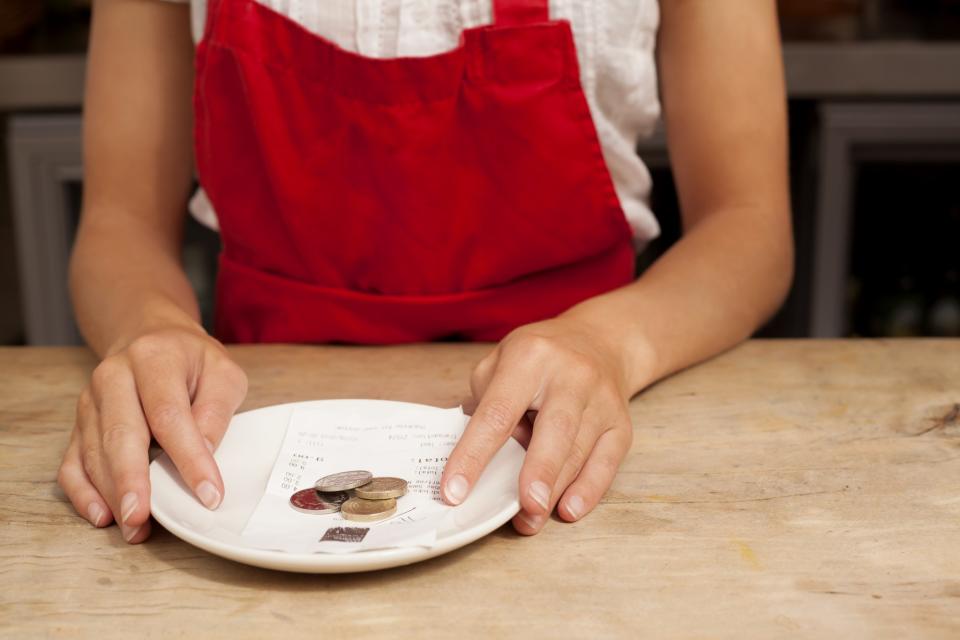CRA crackdowns incentive for service workers to declare tips on taxes

An all-out crackdown on tax dodgers working in Canada’s service industries means the tax man is poised to come down on those who choose not to claim money earned in tips.
“It’s no longer a question of if the Canada Revenue Service (CRA) is going to do an audit or assessment, it’s a matter of when,” says Lisa Gittens, an H & R Block tax professional in Scarborough. “They’re being very specific, almost regimented, in their audits and assessments.”
Whether you’re cutting hair, driving a cab or waiting on tables, 15 per cent of the sales made during a shift is the amount the CRA expects service-sector workers to report on their tax returns for tip earnings, says Gittens. If the CRA finds employees haven’t reported tips or have underestimated their tips, that’s when they are likely to launch an investigation of you or your employer.
Gittens says the CRA is increasing its audits across the country in an effort to determine what tip amounts are paid out regionally on everything from massages and valets to tattoo artists and bartenders. The reviews take place more frequently in areas where there is high tourist traffic such as Toronto, Vancouver and Nova Scotia, she says.
Lawrence Alexander knows all about being audited. His Niagara Falls restaurant was targeted in 2014, when about 30 of his full-time serving staff were inspected for tax evasion. The exercise meant 100-plus hours of work for his bookkeeper and office manager because they were asked to search and find the required documents for the tax auditors.
“The (CRA) knows that restaurant employees notoriously don’t claim the amounts they should,” says the chef and co-owner of The Famous, a 24-hour diner located in the Fallsview Casino Resort. “So we provided [Revenue Canada] the info and they looked at what my employees put in and on a case by case basis, they contacted them. Some had to pay back thousands and thousands.”
Alexander understands to an extent why servers do what they do. He believes some workers simply don’t view tips the same as wages so they’re more inclined to pocket cash money. While some rationalize that defrauding the government of their tips counteracts the low hourly wages of servers, Lawrence doesn’t buy that argument as a typical full-time server at his restaurant earns more than $50,000 a year in salary and tips. And, he says based on past experience, they can earn considerably more in fine-dining establishments.
According to Gittens, about 75 per cent of Canadians work in the service industry. It’s believed that customers and clients in Canada tip to the tune of about $4-billion per year. The CRA estimates that wages paid under the table including undeclared tips accounted for an estimated $21.4 billion in 2013.
The benefit of reporting these tips, Gittens says, is that you can make voluntary CPP contributions so that when it comes times to retire that portion is there for you to claim as your pension benefit. Also, bear in mind the more taxable income you report, the more you can sock away into RRSPs, which will serve you well come retirement, as well as help reduce your current tax bill.
Employees who receive tips should be keeping track of their gratuities on a regular basis. Whether you use a notebook or a file on your computer, a smart phone or notes on a wall calendar, getting into the habit of jotting down your tips following each shift is good practice, Gittens says. Be sure to record the amount of cash tips you received and the date you received them.
Failing to report tips or underestimating the amounts can result in penalties, interest and even prosecution for both business owners and employees.
As for whether the audits actually do anything to deter tax fraud, Alexander thinks they may have a positive effect.
“I think for most staff it’s changed their tune,” he says. “They must think, I’ve got to be a little more honest.”

 Yahoo Finance
Yahoo Finance 